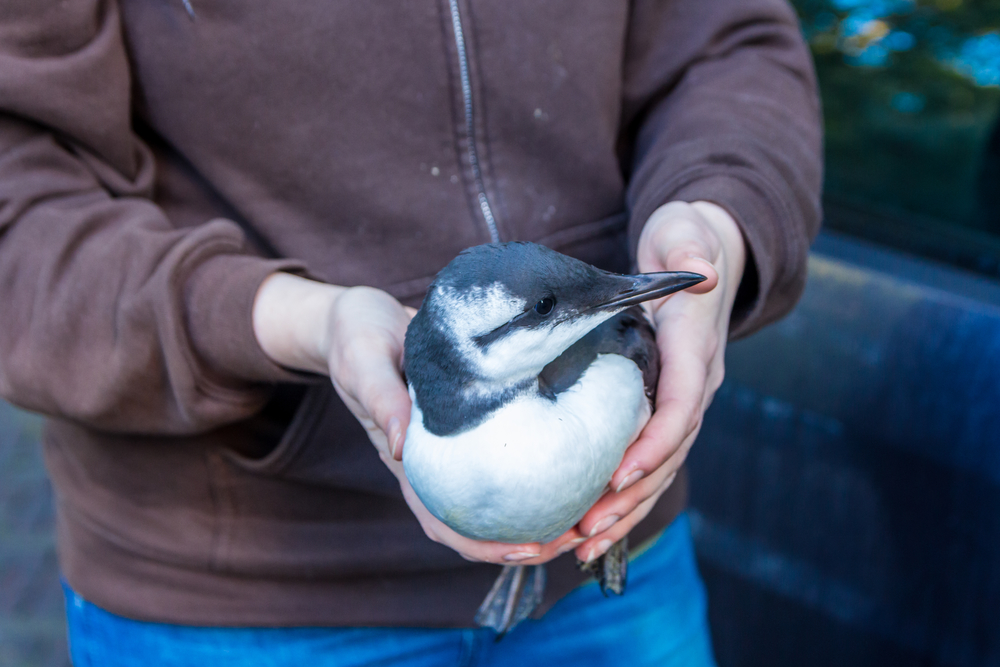Mass seabird deaths baffle researchers, thousands wash up on Dutch beaches


As many as 20,000 guillemots have died in Dutch waters in the past few weeks, baffling researchers, broadcaster NOS said on Tuesday.
The sea birds, which breed on cliffs and live on fish and crustaceans, are being washed up dead on Dutch shores from the Wadden Islands to Zeeland. In addition, hundreds of weakened birds have been taken to animal shelters for treatment.
‘The death total is very high. We have not seen such mass deaths since the 1980s and 1990s,’ marine biologist Mardik Leopold from Wageningen University told NOS.
No-one yet knows the cause of the deaths. Some have speculated that plastic from the hundreds of containers which fell from a cargo ship last month could be responsible. Others have suggested paraffin washed up on the beaches could be to blame.
Er worden momenteel heel erg veel dode zeekoeten gevonden op #Terschelling en #Ameland. Zojuist vernomen dat er een zak vol dode dieren vandaag van #Terschelling naar het @NIOZnieuws gaat voor onderzoek over de oorzaak van deze massale sterfte. pic.twitter.com/ILVXxXqjVc
— Albert Wester (@Albert_Wester) January 27, 2019
The sick animals have blood in their droppings and this could be caused by mass starvation, Leopold said. ‘When they are starving, the birds’ organs are consumed by their bodies,’ the researcher told NOS.
However, he said, the North Sea close to the Dutch coast is currently rich in sprat and young herring, making food shortages unlikely.
Next week Leopold will begin examining the bodies of around 100 dead birds which he has collected over the past few days in an effort to determine the cause of death.
In the meantime, the guillemot population in the North Sea numbers around two million, he said.
Thank you for donating to DutchNews.nl.
We could not provide the Dutch News service, and keep it free of charge, without the generous support of our readers. Your donations allow us to report on issues you tell us matter, and provide you with a summary of the most important Dutch news each day.
Make a donation